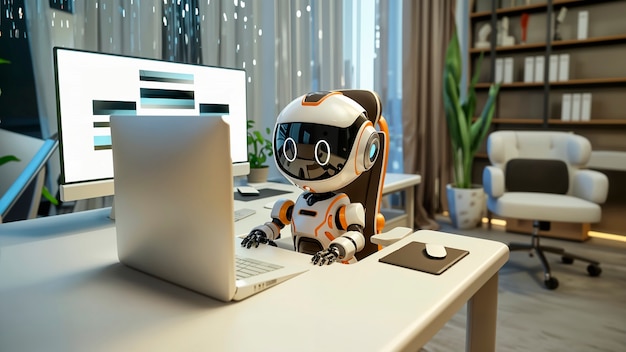
Anthropic, a leading artificial intelligence company supported by Amazon, Google, and Salesforce, has introduced a range of robust collaboration tools for its AI assistant Claude. These new features, Projects and Artifacts, are designed to transform team interactions with AI, potentially altering workflows across various sectors.
Scott White, Anthropic’s product lead, mentioned that their goal with Claude is to develop AI systems that work in tandem with people, significantly enhancing their workflows. The Projects feature centralizes knowledge and AI interactions in one accessible space, improving team collaboration and productivity.
In real-world application, a user can create a private project for onboarding new hires, highlighting the tool’s potential to streamline workflows while ensuring data privacy—a crucial advantage in the competitive AI assistant market.
This strategic development positions Anthropic as a strong contender against established companies like OpenAI and Google in the quest to lead AI-assisted workplace productivity. By focusing on team collaboration and knowledge management, Anthropic addresses a critical need in the enterprise market, where integrating AI into current processes remains challenging.
The Projects feature, accessible to Claude.ai Pro and Team users, lets teams organize relevant documents, code, and insights in one location. With a large 200,000-token context window, Claude can process and understand substantial amounts of organization-specific information, enhancing its ability to offer personalized assistance.
White explained that by incorporating an organization’s internal knowledge into Claude’s outputs—such as style guides, codebases, interview transcripts, or past work—the AI can provide more precise, tailored assistance, significantly reducing the time required to obtain valuable results.
This development tackles the “cold start” problem in AI, where systems initially lack specific context about a domain or task. By allowing users to feed relevant internal knowledge to Claude, Anthropic gives the AI a “warm start,” enhancing its understanding of organizational needs and context.
Industry analysts see this as a significant advancement in making AI more accessible and useful for businesses, lowering the barriers to effective AI integration by letting teams easily contextualize the AI with their own data and knowledge.
The new update also introduces advanced sharing features for nuanced team collaboration. Users can now easily share specific Projects, Artifacts, or individual conversations with colleagues, facilitating knowledge transfer and decision-making processes. Team leaders can control access levels, ensuring sensitive information remains protected while encouraging collaborative work.
The new Artifacts feature further boosts Claude’s utility, especially for tasks involving code, design, and content creation. This feature allows users to generate and edit content alongside their conversation with Claude, streamlining the creative process.
Early adopters have reported notable productivity gains. North Highland, a change and transformation consultancy, claims to complete content creation and analysis tasks up to five times faster using Claude. This increase in efficiency could have significant implications for knowledge workers across various sectors.
Anthropic emphasizes robust security measures to address data security and privacy concerns. Projects offer multiple permission levels to ensure data security, with options to set a project as private, public, or shared with specific individuals. The company assures users that data shared within Projects will not be used to train their generative models without explicit user consent.
Looking ahead, Anthropic plans future integrations with popular applications and tools, focusing on seamless AI integration into existing business processes. This commitment suggests that Claude will become an integral part of modern workplace ecosystems.
As the AI industry continues to move rapidly, Anthropic’s latest update signifies a shift towards more collaborative and context-aware AI systems. This approach focuses on enhancing human capabilities, improving communication, and making expertise more accessible across organizations.
In an increasingly competitive AI market, Anthropic’s emphasis on augmenting human abilities rather than replacing them could be a compelling argument for businesses looking to integrate AI into their workflows. Tools like Claude that prioritize collaboration and context-awareness may shape the future of work in the AI era.
The launch of these new features marks a significant milestone in the evolution of enterprise AI, potentially setting new standards for how businesses leverage AI for innovation and efficiency. As the competition for AI-assisted workplace dominance intensifies, industry giants will likely keep a close eye on Anthropic’s bold move.